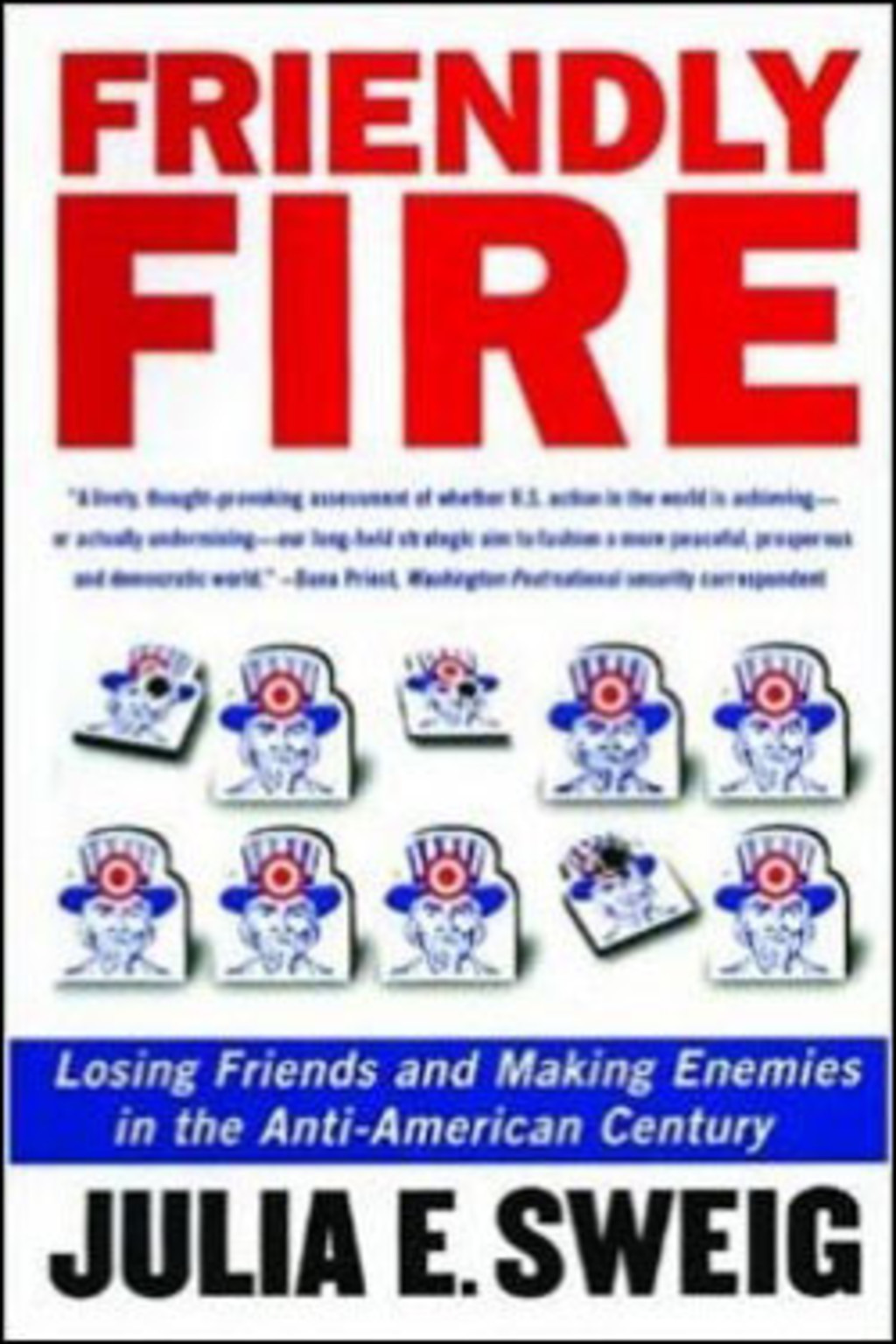Friendly Fire
Losing Friends and Making Enemies in the Anti-American Century

- Publisher
- PublicAffairs
- Release Date
- March 2006
- Pages
- 272
- ISBN
- 1586483005
In 1945, the United States was the founding impulse behind the cornerstones of the international community: the World Bank, the International Monetary Fund, and the United Nations. At that time, American ideals were perceived to coincide with American actions, intended to expand social, legal, and economic protections around the world. Sixty years later, “Anti-America” has spread into a global phenomenon, crossing borders, classes, ideologies, religions, and generations.
In Friendly Fire: Losing Friends and Making Enemies in the Anti-American Century, Julia E. Sweig, the Council’s Nelson and David Rockefeller senior fellow for Latin America studies and director for Latin America studies, writes that anti-American sentiments were born in Latin America at a time when most of the international community was distracted by the Cold War. Under a policy to contain communism, Sweig argues, the United States sponsored dictatorships and tolerated the subversion of democracy. Recently, as the United States applied a “preemptive Americanism” beyond the Western Hemisphere, the world took notice. Anti-Americanism flourished among the United States‘ closest allies in a way and to a depth not seen before.
Sweig examines the origins of “Anti-America” over the last half century, and outlines policy recommendations for the United States and its allies to ensure that anti-Americanism does not become a debilitating feature of international politics.
Sweig warns that if “allowed to settle into an acceptable global reflex, the new anti-Americanism will undermine the international community’s political will to give the United States the benefit of the doubt” on a wide variety of foreign policy issues, thus hampering international cooperation on global initiatives. Friendly Fire offers a detailed analysis of the interaction between the United States and the world community—and a prescriptive framework to contain the anti-American backlash for the future.
Reviews and Endorsements
An editor’s choice pick in the New York Times
Eighth on the San Francisco Chronicle‘s best-sellers list
We now have in Julia Sweig a major new foreign policy voicegrounded in knowledge, blessed with intellectual power and a gift for lively expression. In this, her latest book, she is a hardheaded liberal in dissecting rampant ‘anti-America’ attitudes worldwide, even as she uses her formidable and relevant expertise in Latin America as a benchmark. And she is a velvet hammer as she pounds away at the need for self-interested decency in dissipating the problem.
Leslie H. Gelb, President Emeritus, Council on Foreign Relations
Americans who oppose the foreign policy of George W. Bush will find much to cheer in this highly readable and vigorously argued book. But Friendly Fire might be even more important to those who believe that anti-Americanism is the inevitable result of our hyperpower status. Partisans of our current foreign policy will need to grapple with Sweig’s arguments about America’s place in the world. Friendly Fire is closely reasoned and prodigiously researched, and, even when I disagreed with Sweig’s conclusions, I found it necessary to pay attention to her arguments.
Jeffrey Goldberg, Washington Correspondent, New Yorker
Julia Sweig has written a lively, thought-provoking assessment of whether U.S. action in the world is achieving or actually undermining our long-held strategic aim to fashion a more peaceful, prosperous, and democratic world. She argues we have veered off course and offers insightful suggestions for getting back on track. A must-read for scholars, soldiers, policymakers and pundits engaged in world affairs.
Dana Priest, National Security Correspondent, Washington Post, and author of The Mission: Waging War and Keeping Peace with America’s Military